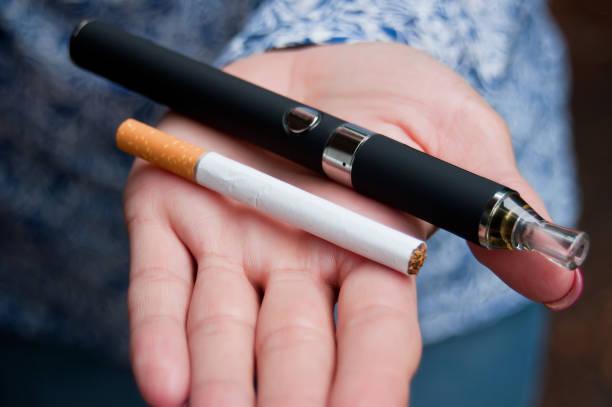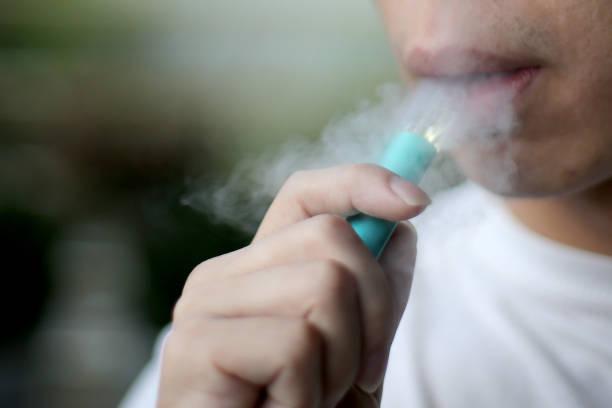Spain’s Canary Islands to Hike Vape Tax in 2025: A Move Toward Stronger Public Health Commitment
In a move that signals growing concerns over public health, the Canary Islands government has announced plans to increase taxes on vape products in 2025. This decision was revealed during a committee meeting on July 18 by the island’s Finance Minister, Matilde Asián, who confirmed that the new tax will be applied as part of the 2025 budget.

This tax hike follows a similar move in 2024 when the Canary Islands became the first region in Spain to introduce a tax of €0.10 per milliliter on vape juice, regardless of nicotine content. Minister Asián emphasized that this policy underscores the government’s commitment to public health. She also expressed hopes that such a tax model could eventually be adopted across Europe.
Melodie Mendoza, a member of the socialist ASG party, has voiced concerns about vape devices, calling them a “deceptive gateway for youth smoking.” She highlighted that many vape products are designed to look like toys and are flavored with sweet, appealing tastes that attract younger audiences. Mendoza is in full agreement with the Spanish Ministry of Health, which has recently equated the regulation of vapes to that of traditional tobacco products. She believes that higher taxes on vape products could deter use, generate revenue for health services, and contribute to reducing overall consumption.
FDA Approves Seven Vuse Tobacco-Flavored Vapes for U.S. Market
In the U.S., the Food and Drug Administration (FDA) has granted approval for seven tobacco-flavored vape products by R.J. Reynolds Vapor Company, increasing the number of authorized vape products to 34. The approval, which was announced on July 18, applies to the Vuse Alto Power Unit and six pre-filled, closed-system tobacco-flavored pods, with varying nicotine concentrations from 1.8% to 5%.

While these products are now authorized for sale in the U.S., the FDA was quick to remind the public that approval does not mean these products are safe, nor does it signify they have been “FDA approved” in the conventional sense. The agency reiterated its stance that all tobacco products are harmful and addictive, and it continues to advise against the use of these products, particularly for young people.
The FDA’s evaluation of these vape products followed the premarket tobacco product application (PMTA) process, which involves a rigorous scientific review to assess the risks and benefits of tobacco products on public health. In this case, the FDA concluded that allowing these tobacco-flavored vapes could benefit adult smokers by offering a potentially less harmful alternative to traditional cigarettes, but the risks to minors remain a significant concern. To minimize this risk, the FDA imposed strict marketing restrictions to ensure that these products do not target or appeal to younger audiences.
Despite concerns about the appeal of flavored vapes to teenagers, studies show that tobacco-flavored vapes are less likely to be used by minors than flavored alternatives. According to the 2023 National Youth Tobacco Survey, only 6.4% of middle and high school students who use vapes reported using tobacco-flavored products. Nevertheless, the FDA continues to closely monitor these products’ impact on youth vaping rates and will take action if evidence shows a significant uptick in use among minors.
EU Smoking Rates Drop Only 1% in Three Years: Vaping on the Rise Among Youth
Despite significant efforts to curb smoking in the European Union, new data reveals that progress has been slower than expected. A report published on July 16 shows that the smoking rate across the EU has decreased by only 1% over the past three years, leaving 24% of the population still smoking. This modest decline highlights the challenges faced in reducing tobacco use across the region.

The study also pointed out significant disparities among EU member states. While countries like Bulgaria, Greece, and Croatia have smoking rates that exceed 35%, Sweden has achieved remarkable success in reducing smoking, with its rate dropping below 10%. This uneven progress underscores the varying levels of success and challenges in anti-smoking policies across Europe.
In addition to the slow decline in smoking rates, vaping is becoming increasingly popular among young people in the EU. Around 3% of respondents reported having used vape products, with the highest usage observed among those aged 15-39. Interestingly, many young users started vaping because of peer influence, while others turned to vapes as a means of reducing or quitting smoking. This trend aligns with broader public health concerns regarding the rising popularity of vaping, especially among younger demographics.
The European Union has set a bold goal to create a “smoke-free generation” by 2040, aiming to reduce the proportion of smokers to below 5%. However, achieving this ambitious target will require stronger regulatory measures. Frank Vandenbroucke, Belgium’s Minister of Health, has emphasized the need for more aggressive tobacco control policies and voiced support for the upcoming revisions to the EU’s Tobacco Directive. Despite previous attempts to update this legislation, progress has been slow, and there is a growing call for quicker action to address the evolving tobacco and vape markets.
Lilia Olefir, Director of the Smoke-Free Partnership, also urged the EU to resume its review of tobacco tax policies, product regulations, and advertising restrictions. She highlighted the urgent need to combat the tobacco industry’s influence, stressing that tobacco use remains the EU’s leading avoidable health risk, causing around 700,000 deaths annually.
PMI Invests $600 Million in New ZYN Nicotine Pouch Factory in Colorado
In a significant move signaling its ongoing shift toward smoke-free products, Philip Morris International (PMI) has announced a $600 million investment in a new factory to produce ZYN nicotine pouches in Aurora, Colorado. The new facility, expected to open in 2026, will create 500 permanent jobs and over 5,000 temporary construction jobs, bringing a projected $1 billion economic impact to the region.
Stacey Kennedy, PMI’s President and CEO for the U.S. business, underscored the significance of this investment, emphasizing that ZYN products are part of the company’s broader strategy to meet the growing demand for smoke-free alternatives. Last year, ZYN sales skyrocketed, with over 350 million cans sold—a 62% increase over 2022—and PMI projects the brand will contribute more than $2 billion in revenue by 2024.
Despite the positive economic impact, local lawmakers like Senator Kyle Mullica have raised concerns about the potential health risks associated with nicotine products. While he supports the creation of jobs in the state, Mullica remains committed to holding the tobacco industry accountable for its role in public health issues.
The new factory in Colorado is part of PMI’s broader strategy to expand its portfolio of nicotine-based products as it continues its transition away from traditional cigarettes. With nicotine pouches like ZYN growing in popularity, this move represents the company’s commitment to tapping into the burgeoning market for smokeless nicotine alternatives.
Philippines Cracks Down on Vape Smuggling: $1.5 Million in Illegal Products Seized in Three Months
The Philippine Department of Trade and Industry (DTI) has ramped up efforts to combat the illegal importation and sale of vape products. Over the past three months, the DTI’s special task force, known as the “Kara Lasag Task Force,” has seized more than 311,000 unlicensed and non-compliant products, worth approximately ₱89.7 million (around $1.53 million).
Among the seized items, 54,000 were illegal vape products, valued at ₱27.9 million (about $480,000). In addition to the confiscations, the DTI also shuttered several businesses found operating without the proper permits, including one in Tanza, which was selling electronic products without declaring them on its license.

The crackdown on illicit vape products is part of the government’s broader effort to regulate the industry and ensure that only authorized, compliant products are sold to consumers. The Philippine government has also been implementing stricter controls to prevent the smuggling of both tobacco and vape products, particularly given concerns over their potential use by young people.
Final Thoughts: A Changing Landscape for Vaping
The global vaping industry continues to evolve at a rapid pace, driven by both regulatory shifts and consumer demand for alternative nicotine products. While vaping is increasingly seen as a less harmful alternative to traditional smoking, concerns remain—especially regarding its appeal to younger audiences. Policymakers are striving to find the right balance between fostering innovation and protecting public health, particularly when it comes to the regulation of flavors, marketing, and distribution.
As governments worldwide, from Spain to the Philippines, tighten their grip on the vape industry, the next few years could see a more regulated and diversified market. Whether this will result in a reduction in smoking rates or merely shift the landscape of nicotine consumption remains to be seen, but one thing is clear: the vaping industry is here to stay—and it’s evolving fast.


